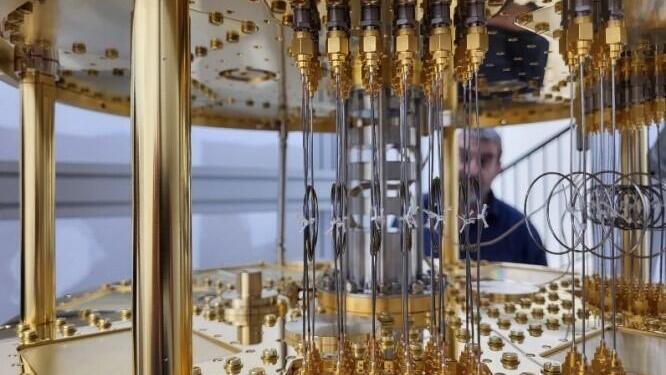
Quantum Machines launches Israeli Quantum Computing Center
The IQCC is a state-of-the-art Quantum and HPC center that integrates the power of quantum and classical computing resources
Quantum Machines announced on Monday the opening of the Israeli Quantum Computing Center (IQCC).
The IQCC is a state-of-the-art Quantum and HPC center that integrates the power of quantum and classical computing resources. According to Quantum Machines, the center, located at Tel Aviv University, is the first in the world to house multiple co-located quantum computers of different qubit modalities (starting with superconducting qubits and photonic) all utilizing the same control stack – Quantum Machines’ OPX series – and all tightly integrated with on-prem classical supercomputing resources and cloud accessible. The IQCC also houses the world’s best equipped cryogenic testbed, with 63 RF lines, 96 DC lines, and a full suite of test and measurement equipment.
The Israel Innovation Authority selected Quantum Machines to establish the center with a budget of NIS 100 million (approximately $27 million) for three years. Israeli company Classiq acted as a consultant, with Elbit Systems serving as a strategic partner in the venture.
The IQCC will also include the first deployment of DGX Quantum, a unified system for quantum-classical computing co-developed by Quantum Machines and NVIDIA.
“All of the world’s most advanced quantum computing research facilities are closed or offer very limited access to those outside of their organization. You can’t compete if you need to fly halfway around the world for limited access,” said Itamar Sivan, CEO of Quantum Machines. “When we thought about what would propel quantum computing forward, we realized that building the most advanced facility in terms of interoperability, modularity, and integration with high-performance computing (HPC) and the cloud was the way to go. Our open architecture approach will ensure that the facility can be continuously upgraded and scaled to stay at the cutting edge, making it an accelerator for the entire ecosystem in Israel and internationally.”
Related articles:
The quantum computing center will enable access to conducting research and development in all layers of hardware and software on three different quantum processing technologies (superconducting qubits, cold ions and optic computer). The center will provide services to the Israeli quantum computing community in both industry and academia.
A quantum computer is based on the properties of quantum particles, and can perform many calculations using the same algorithm at a great speed, such as image processing, simulations and the decoding of codes.
“Before the IQCC, a developer of a quantum processor chip would need to build their own testing setup, costing millions,” said Yonatan Cohen, CTO of Quantum Machines. “We envisioned the most advanced facility we could dream up, one that would attract companies and researchers from around the world. Many of the technologies that were necessary to enable it did not yet exist, so we spent two years building them in collaboration with the world’s leading technology companies. Now, researchers can plug their chip into our testbed and benefit from the most advanced setup in the world, accelerating their development process and reducing costs significantly.”
The official ceremony to open the IQCC will take place on June 24 as part of Tel Aviv University’s AI and Cyber Week.
Quantum Machines has raised $83 million to date from investors Avigdor Willenz, the investment arm of Samsung, Samsung Next, and Israel’s Red Dot Capital Partners. Quantum Machines was founded in early 2018 by CEO Dr. Itamar Sivan, Dr. Yonatan Cohen, who serves as the company's CTO, and Dr. Nissim Ofek, who serves as the VP R&D.
